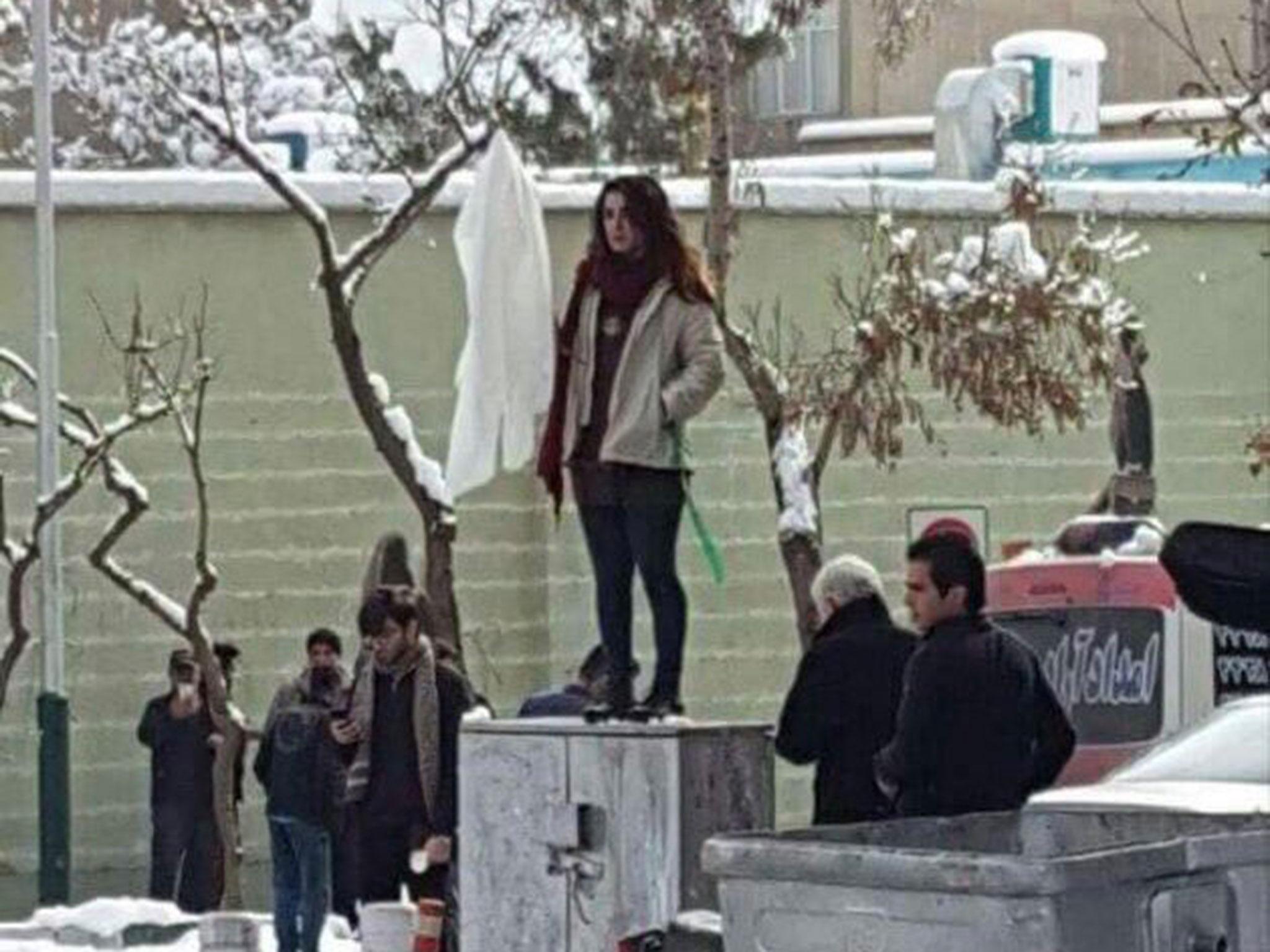Iran: Authorities arrest 29 women accused of throwing off headscarfs
Police describe women as 'deceived' for taking part in anti-hijab campaign

At least 29 women have been arrested in Iran for taking part in protests against a law forcing them to conceal their hair in public.
Images of Iranian women holding their hijabs aloft in the street spread on social media as they symbolically rejected what one activist described as the wider “interference of religion” in their lives.
"We are fighting against the most visible symbol of oppression," said Masih Alinejad, who hosts the website My Stealthy Freedom where women in Iran post photos of themselves without hijabs.
Iranian police were quoted by the Tasnim news agency, which has close links to the government, as saying the women were "deceived" into taking part in an anti-hijab campaign known as "White Wednesdays".
The prosecutor general, Mohammad Jafar Montazeri, reportedly dismissed the protests as "childish" and instigated "from outside the country".
After Iran’s 1979 revolution, women were obliged by law to cover their hair with a scarf, known as the hijab, and wear long loose fitting clothes. Violators can be stopped in the street by the so-called “morality police” and be publicly admonished, fined or arrested.
One activist said: “These women are saying, 'It is enough - it is the 21st century and we want to be our true selves’”.
The trend picked up momentum after video and images were posted online of one woman, waving a white scarf on a stick in December - a day before demonstrations erupted against economic conditions in eastern Iran, said Ms Alinejad.
The focus of the protests broadened as they spread across the country, with demonstrators calling for Iran's supreme leader, Ayatollah Ali Khamenei, to step down.
Ms Alinejad said the woman was arrested after the video went viral. She has since been released, according to a Facebook post by Iranian human rights lawyer Nasrin Sotoudeh.
Although the wider anti-government demonstrations have ended, women across Iran are "fed up" and continue to protest against "the interference of religion in our personal lives", said Ms Alinejad..
She said she is now flooded with videos and photos of women imitating the viral video and she shares them on the My Stealthy Freedom Twitter account and Facebook page.
“These people are not fighting against a piece of cloth, they are fighting against the ideology behind compulsory hijab,” said Ms Alinejad, who called the movement the “true face of feminism.”
To campaign against the obligatory wearing of headscarves, Ms Alinejad last year encouraged women to take videos or photos of themselves wearing white and upload them on social media with the hashtag #whitewednesdays.
The #whitewednesdays campaign is part of a larger online movement started three years ago by the journalist, who has lived in self-imposed exile since 2009. She has received death threats since her campaigning started.
“I wake up everyday with the voices of these women in my inbox," she said from her home in New York, “I am full of hope. Civil disobedience is the first step to gain our victory.”
Additional reporting by Reuters
Join our commenting forum
Join thought-provoking conversations, follow other Independent readers and see their replies
Comments
Bookmark popover
Removed from bookmarks